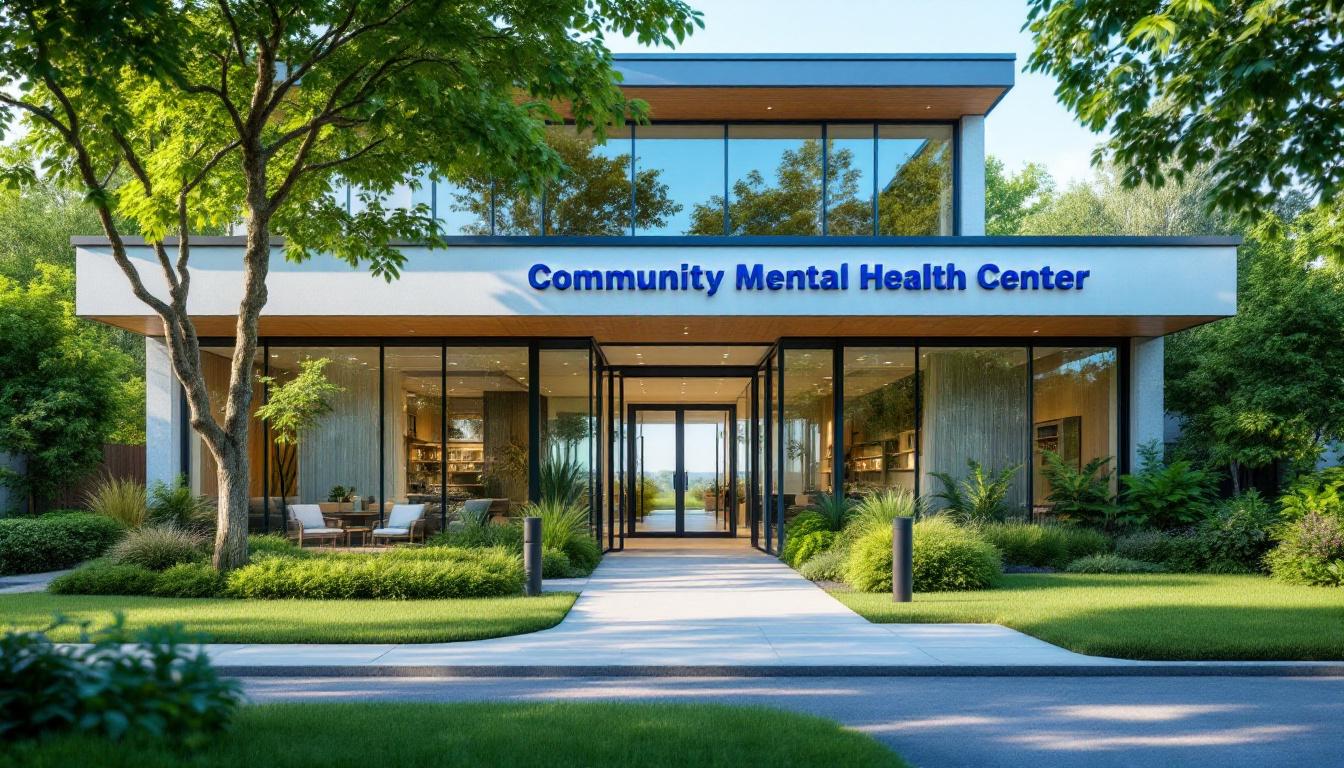Understanding Medicaid’s Pivotal Role in Mental Health Care
Medicaid serves as the primary health coverage for millions of Americans requiring mental health and substance use disorder services. Its vast reach and comprehensive coverage make it a critical component of the nation’s behavioral health infrastructure. This article explores how Medicaid facilitates access to mental health services, the policies shaping coverage, eligibility criteria, ongoing challenges, and the impact of Medicaid expansion.
Medicaid’s Framework for Supporting Mental Health Services
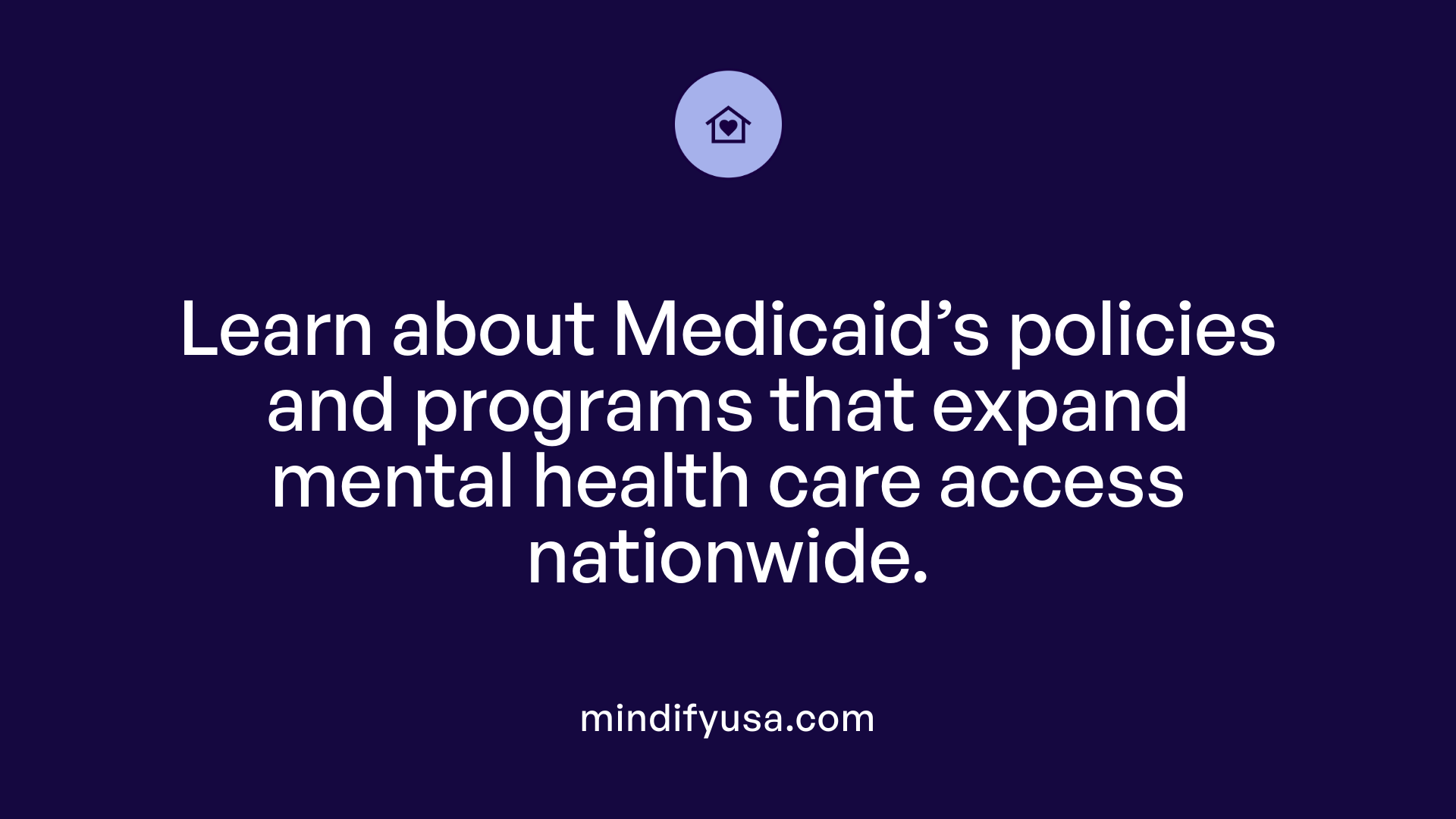
How does Medicaid support mental health access, and what policies and coverage options are available?
Medicaid plays a crucial role in providing mental health services to millions of Americans. It supports access primarily through managed care programs like HealthChoices, where beneficiaries are enrolled with managed care organizations (MCOs). These organizations coordinate a wide spectrum of behavioral health services such as counseling, medication management, substance use disorder treatment, and crisis services.
Beneficiaries can choose providers within these networks, facilitating consistent and quality care tailored to their individual health needs. State Medicaid programs are mandated to cover essential mental health treatments for adults, as well as comprehensive services for children through the Early and Periodic Screening, Diagnostic, and Treatment (EPSDT) benefit.
Federal legislation, notably the Mental Health Parity and Addiction Equity Act, ensures that mental health benefits are on par with other medical benefits—avoiding higher copays and stricter limits for mental health services. Coverage options vary by state but generally encompass outpatient therapy, inpatient psychiatric care, substance use treatment, and medication management.
State Medicaid agencies, supported by federal policies and resources like Medicaid.gov, provide detailed information about available services and specific policies. Despite these supports, access can be limited by provider availability, administrative hurdles, and state-specific coverage decisions. Overall, Medicaid’s comprehensive coverage and policies are vital in expanding access to critical mental health services for nearly 40% of nonelderly adults and millions of children nationwide.
Eligibility and Access Procedures for Mental Health Services
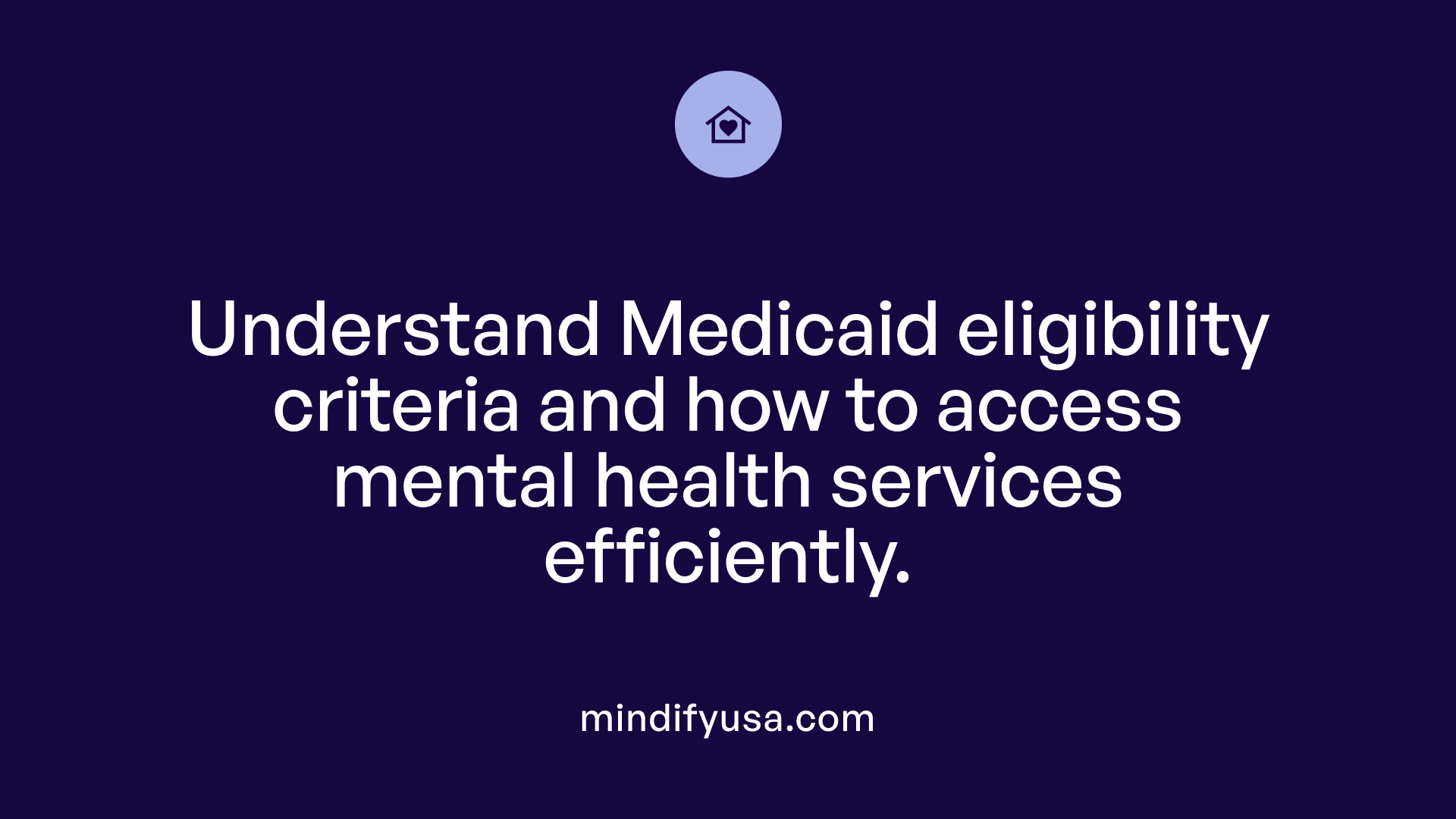 'What are the eligibility criteria and requirements for obtaining mental health services through Medicaid?'
'What are the eligibility criteria and requirements for obtaining mental health services through Medicaid?'
Eligibility for Medicaid mental health services varies based on income, family size, age, disability, and state-specific guidelines. Generally, low-income pregnant women, children, and adults meet the income thresholds established by federal and state laws. Individuals with disabilities, including those with mental health conditions, often qualify through specialized programs like Home and Community-Based Services (HCBS) waivers, which require assessments and diagnosis verification. Applicants must submit an application to their state Medicaid agency, providing necessary documentation such as income proof, disability proof, or other qualifying factors. Many states offer retroactive coverage dating back up to three months before the application date, ensuring continuous access. These eligibility rules are influenced by federal mandates, such as the Affordable Care Act, and vary slightly across states, but they aim to broaden access to needed mental health support.'
'How can individuals access mental health services through Medicaid, and what are the steps involved?'
Accessing mental health services through Medicaid involves several steps. First, individuals need to verify their Medicaid enrollment status by applying through the state Medicaid office or online portals. Once enrolled, beneficiaries should contact their local mental health authorities or managed care organizations (MCOs) to identify authorized providers and receive assistance with referrals.
Most Medicaid services, including counseling, medication management, and crisis intervention, require prior authorization to ensure appropriate use. Providers typically assist enrollees in obtaining these authorizations. In urgent or emergency situations, beneficiaries can contact crisis helplines or emergency services for immediate support.
To locate providers, users can consult online directories, state health department websites, or contact their MCOs directly. Ensuring active enrollment and following these steps enable timely access to personalized, evidence-based mental health care tailored to individual needs.'}}#} anunciado {
Types of Covered Mental Health Services and Provider Resources
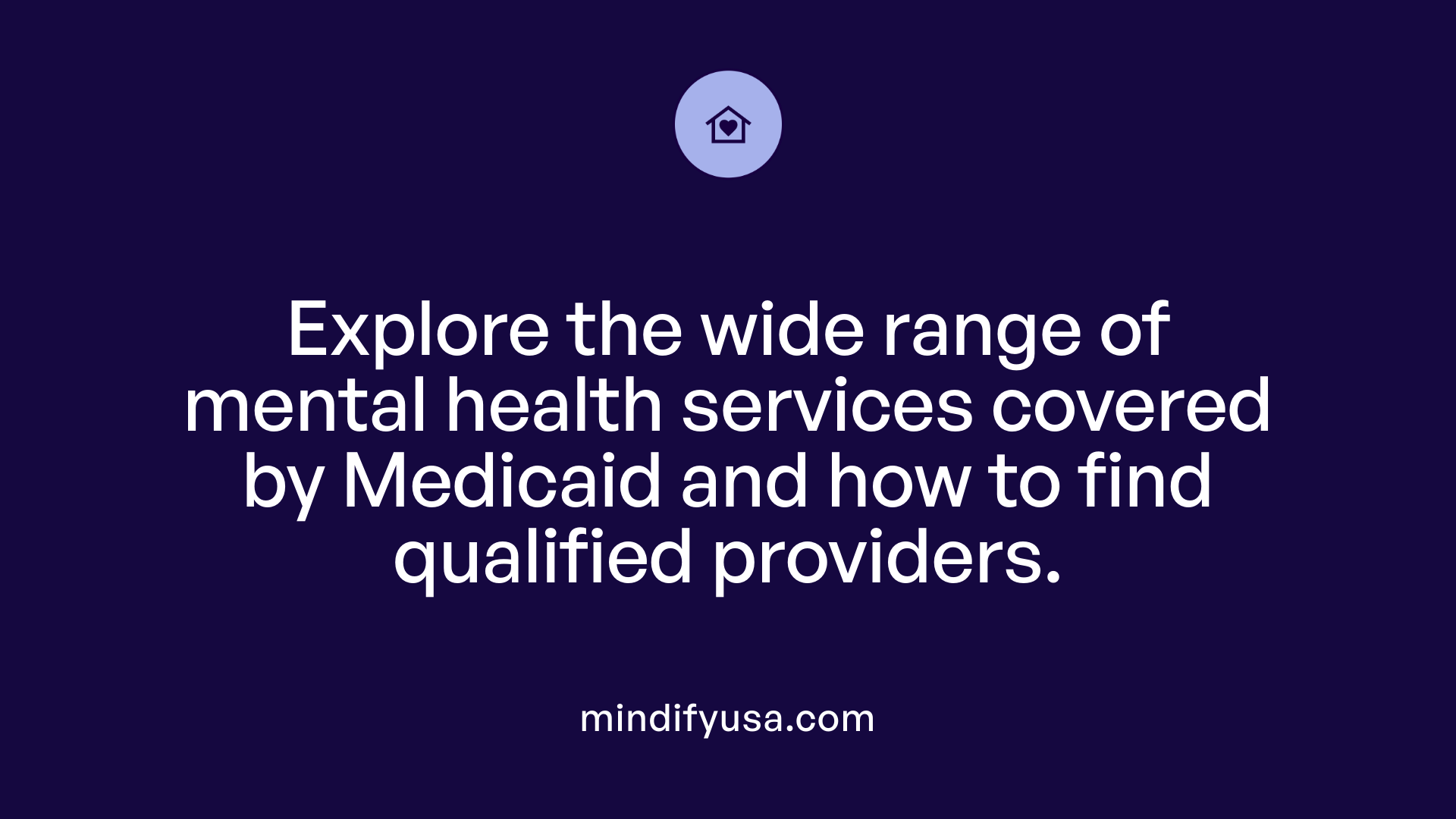
What types of mental health services are covered by Medicaid, and how can individuals find qualified providers?
Medicaid offers a broad range of mental health services essential for managing mental health conditions and supporting recovery. These include outpatient therapy, inpatient psychiatric treatment, medication management, crisis intervention, case management, and specialized treatments for substance use disorders. Many states extend coverage to children and those with complex health needs through regional or managed care plans.
Finding qualified providers is manageable thanks to Medicaid's extensive provider directories. These resources, maintained by state agencies and regional health organizations, list licensed professionals such as psychiatrists, psychologists, therapists, and counselors authorized to deliver Medicaid services. Beneficiaries can access these directories through official Medicaid websites or regional mental health authorities.
In addition, emergency and ongoing care can be facilitated via resources like the 988 mental health hotline and state-specific crisis lines. Overall, Medicaid's comprehensive coverage and resource networks facilitate access to vital mental health services for eligible individuals.
Medicaid’s Critical Role in Supporting Behavioral Health and Substance Use Services
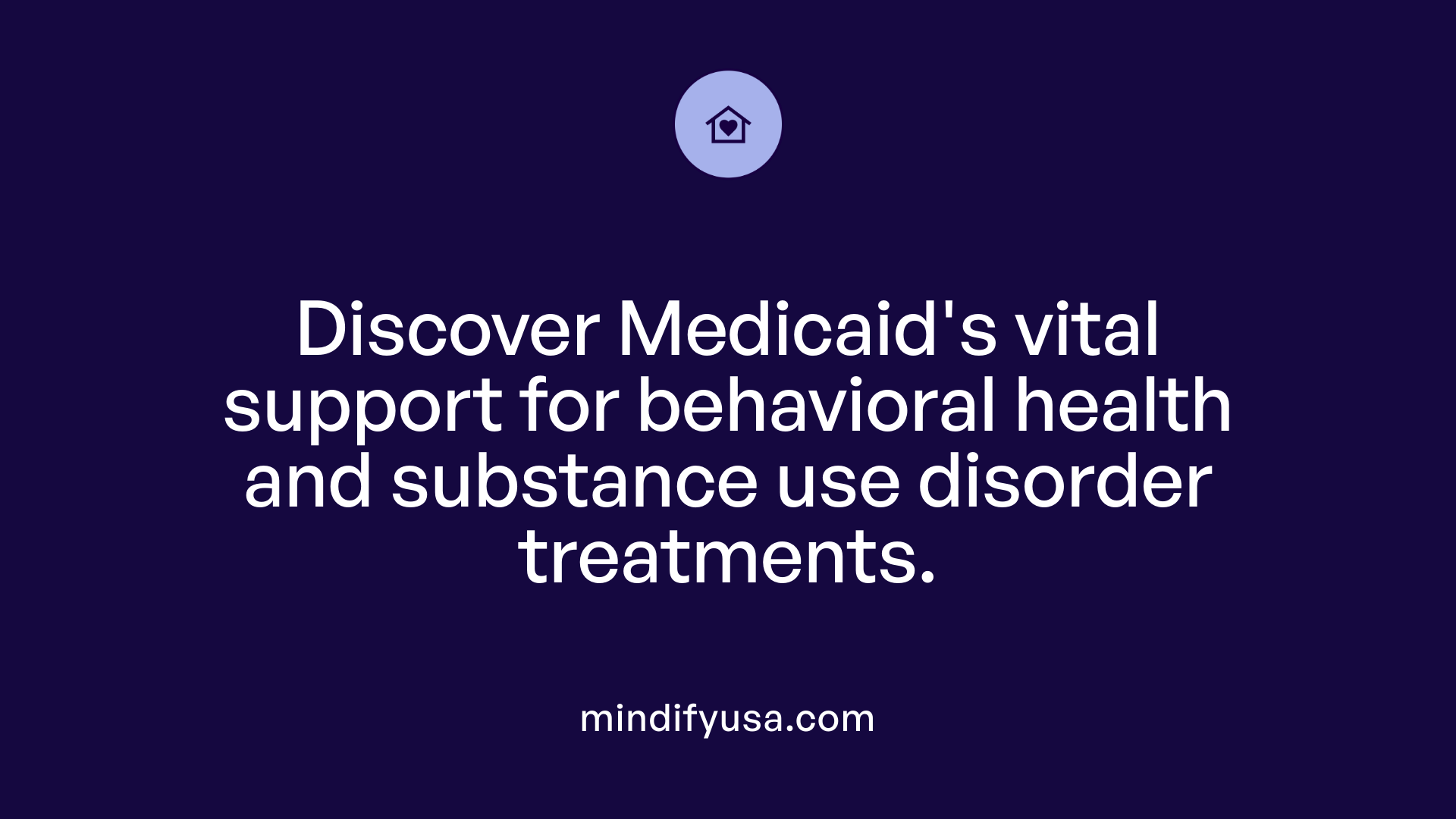 Medicaid stands as the primary payer for behavioral health and substance use disorder (SUD) services across the United States. It finances a wide array of treatments, including counseling, medication-assisted treatment (MAT), inpatient and outpatient services, and recovery programs aimed at helping individuals manage mental health conditions and recover from substance use. By providing coverage to vulnerable populations such as low-income adults, children, and those with disabilities, Medicaid significantly increases access to essential care.
Medicaid stands as the primary payer for behavioral health and substance use disorder (SUD) services across the United States. It finances a wide array of treatments, including counseling, medication-assisted treatment (MAT), inpatient and outpatient services, and recovery programs aimed at helping individuals manage mental health conditions and recover from substance use. By providing coverage to vulnerable populations such as low-income adults, children, and those with disabilities, Medicaid significantly increases access to essential care.
This expanded access helps reduce overdose incidents and mortality linked to opioid and other substances. Federal laws like the Mental Health Parity and Addiction Equity Act promote fair and equitable coverage, ensuring that behavioral health and SUD services are as accessible and affordable as general medical services. Through these policies, Medicaid supports ongoing treatment, prevention, and recovery efforts that are vital to improving individual and community health outcomes.
Ensuring Continued Access to Mental Health Support
Medicaid remains the backbone of mental health and substance use disorder services in the United States. Its broad coverage, policy mandates, and federal support have significantly improved access for millions of Americans, especially underserved and vulnerable populations. While challenges persist—such as provider shortages and regional disparities—ongoing expansions and policy innovations aim to strengthen this vital safety net. Ensuring equitable, comprehensive access to behavioral health services via Medicaid is essential for promoting overall community well-being and mental health resilience nationwide.
References
- Behavioral Health Services | Medicaid
- Access to Mental Health Services for Adults Covered by Medicaid
- 5 Key Facts About Medicaid Coverage for Adults with Mental Illness
- Medicaid Expansion | National Alliance on Mental Illness (NAMI)
- Adult Mental Health | Texas Health and Human Services
- Medicaid's Role in Mental Health and Substance Use Care
- YES Waiver | Texas Health and Human Services
- Medicaid Coverage of Behavioral Health Services in 2022 - KFF
- Does Medicaid Cover Therapy? Yes, and More - GoodRx

